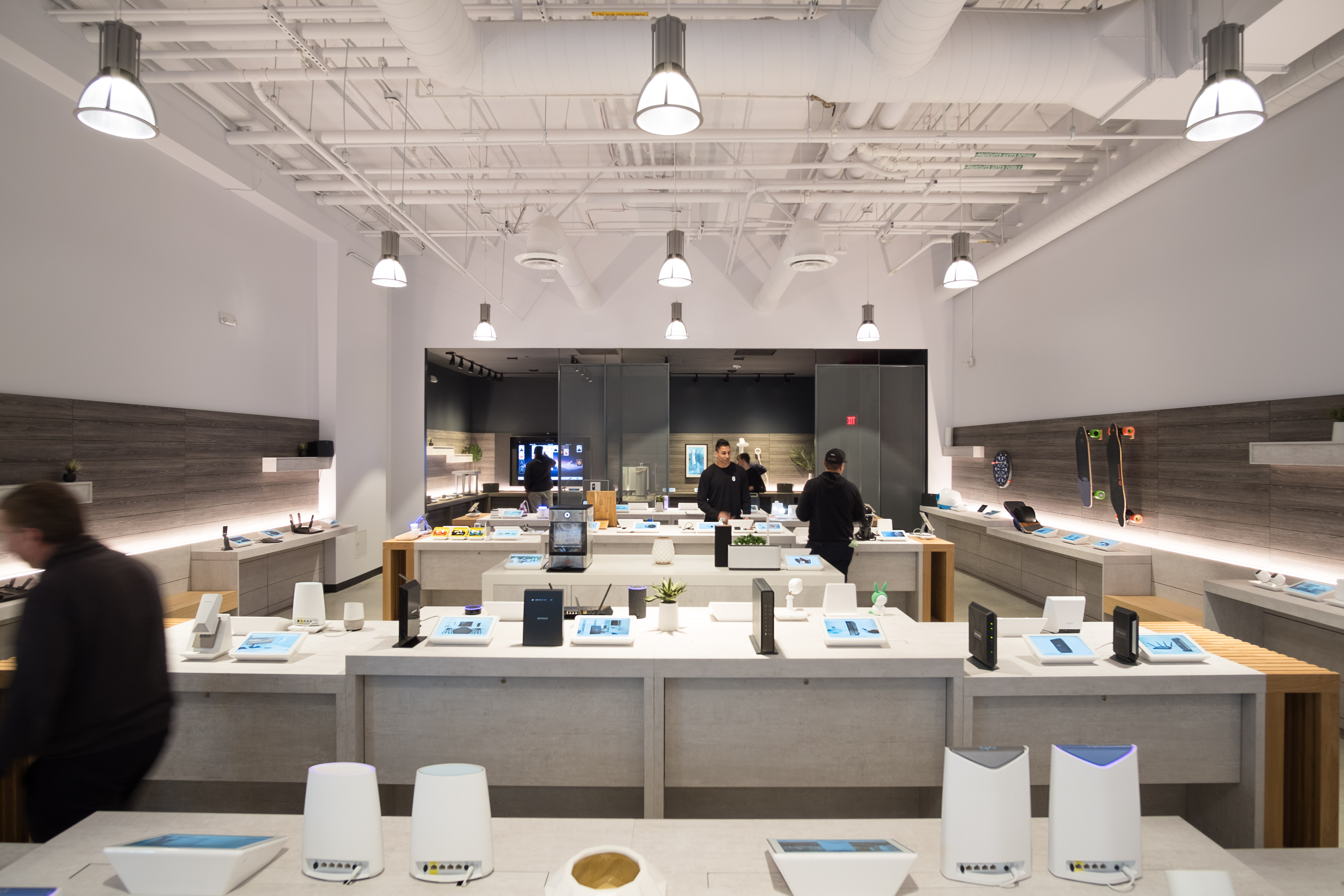Coronavirus cases in the United States are reaching new peaks. E-commerce is continuing to boom. And B8ta, a San Francisco startup which is betting on the future of physical retailers, is doubling down on its in-person footprint.
B8ta offers shelf space to unique digital products, such as electric skateboards or a coffee alarm clock, on behalf of brands that want a physical presence. Today, the company acquired a 1-year old company doing the same for direct to consumer businesses, Re:store.
Backed by Sequoia and SPC, Re:store has a three-story physical location in Maiden Lane in San Francisco and hosts products ranging from beauty, to consumer electronics to lifestyle products. It also has a community co-working space.

The Re:Store community hub.
“The pandemic has emphasized the need for brands to be flexible with their product mix and distribution,” says Selene Cruz, CEO of Re:store. “Some products do well in these times, and brands in a retail-as-a-service model can adapt their offering a lot faster than those in a traditional wholesale model that relies on buying cycles.”
It’s the high-touch startups that are expected to struggle during this time, as rising virus rates threaten the global economy. But, as today’s deal shows, both B8ta and Re:store are bullish on in-person shopping long term.
In fact, in March, B8ta CEO and co-founder Vibhu Nordy penned an extensive Twitter thread in favor of keeping his startups’ stores open, noting that closures would require the company to lose millions and send tens of thousands of employees home. B8ta’s entire value proposition is based on high-touch interactions, and a world in which consumers want to try and experience their products before they buy them.
“I feel like we’ve lived through three lifetimes since I wrote that thread back in March,” Nordy said, noting that it’s been an “extremely difficult year” for the company. However, the Re:store acquisition comes off of new momentum he’s seen since B8ta was able to safely reopen its stores in May.
“We launched more brands last quarter than any other in our history,” Nordy said. “The traditional retail model and traditional real estate model has completely collapsed and brands are looking for something better.” To note, Macy’s, which has backed B8ta, narrowly dodged bankruptcy by securing a $4.5 billion lifeline in financing to temper down sales.

Image Credits: b8ta
B8ta’s Re:store acquisition is a response to a rebound among physical retailers, one that favors an experience instead of a catalog of aisles. A focus on creative in-person experiences versus department stores is an acceleration of a pre-pandemic trend. As direct-to-consumer investors told us in late March, companies can’t depend on a few channels for customer acquisition. As the field gets crowded, brands are looking to stand out, and stores like B8ta and Re:store could help them do that.
To balance out some of B8ta’s bullishness, Nordy did note that “on the shopping side, visitation is way down but sales have almost come back to where they were pre-pandemic.” In other words, people are buying B8ta products online without the physical presence, which means that online platforms are still a preference for consumers.
from TechCrunch https://ift.tt/3oHlxOA
via IFTTT
Comments
Post a Comment